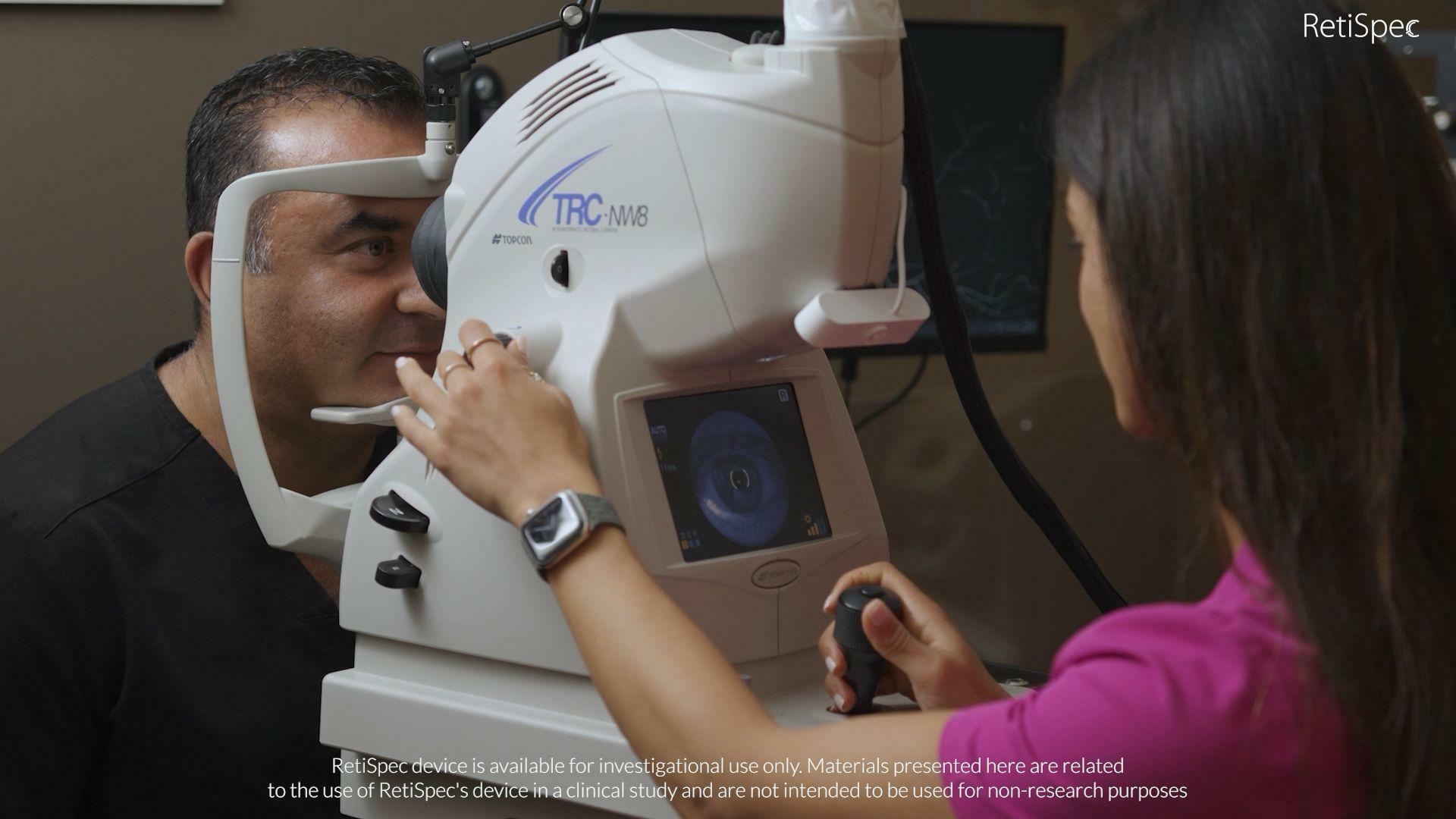Innovative new program for the early detection of Alzheimer’s disease

In response to Ontario’s rising prevalence of dementia, RetiSpec – an OBI portfolio company – and the Toronto Memory Program, in collaboration with the Alzheimer’s Society of Toronto, designed and tested a new care pathway for identifying people with Alzheimer's disease. Using retinal scans, and in collaboration with local eye care clinics (Summerhill Optometry and Victoria Village Optometry), their technology can measure changes in the retina that correlate with the presence of amyloid protein in the brain, a key marker of Alzheimer’s disease and the earliest measurable sign. This ground-breaking initiative also received significant funding from the Davos Alzheimer’s Collaborative’s Healthcare System Preparedness, an innovative funding initiative that measurably increase rates of cognitive screening, early detection, and accurate diagnosis of Alzheimer’s disease and related disorders.”
Eliav Shaked, CEO and co-founder of RetiSpec, said that his company’s technology can be used to screen people rapidly and noninvasively during their routine eye exams, offering an easy, accessible, and scalable alternative to current methods of Alzheimer’s disease detection.
“We have successfully integrated our solution into neurology and research settings as a part of our clinical validation. We are building on this traction and expanding to eye care settings, which offers a unique venue to maximize access to screening,” he explained.
Shmuel Estreicher of the Alzheimer's Society of Toronto says that due to Canada’s aging population, there will be a lot more people who will experience cognitive impairments and/or dementia. “It's so important to make this screening more accessible, especially the early screening through cognitive assessment and through tools like the RetiSpec scan.”
The project resulted in nearly 1000 individuals engaged in pre-screening conversations about brain health and memory, with 60% of those conversations originating in the optometry setting. The Alzheimer Society of Toronto saw a 667% increase year over year — soaring from approximately two cognitive assessments conducted per month to 14. Participants appreciated having their memory concerns addressed in less clinical settings and closer to home.
Amelia Hansen of the Toronto Memory Program noted: "We've seen that it's feasible for social workers in the community to complete memory screenings outside of typical clinical settings. Screenings offered in community centers lower the barrier for assessing memory concerns for people who may not have the opportunity to address those concerns with their family physicians or a specialist."
Recent clinical trials have led to the FDA approval of Leqembi, the first disease-modifying treatment for people with a diagnosis of dementia. This drug is currently undergoing Health Canada review. A second disease-modifying treatment is expected to also receive FDA approval in the next 6 months. When these medications arrive on the market, it will become more important that people can get access to a timely diagnosis so that they can get access to a drug that will treat the disease. RetiSpec is planning for this future and setting up a clinical trial to support regulatory approval for their technology. If successful, they will address a key gap in the delivery of these potentially life changing medicines by creating an accessible, fast, and cost-effective way to screen for Alzheimer’s disease and dementia at its earliest stage. Learn more about future possibilities for seniors and their healthcare.
“We've seen that it's feasible for social workers in the community to complete memory screenings outside of typical clinical settings. Screenings offered in community centers lower the barrier for assessing memory concerns for people who may not have the opportunity to address those concerns with their family physicians or a specialist.”
